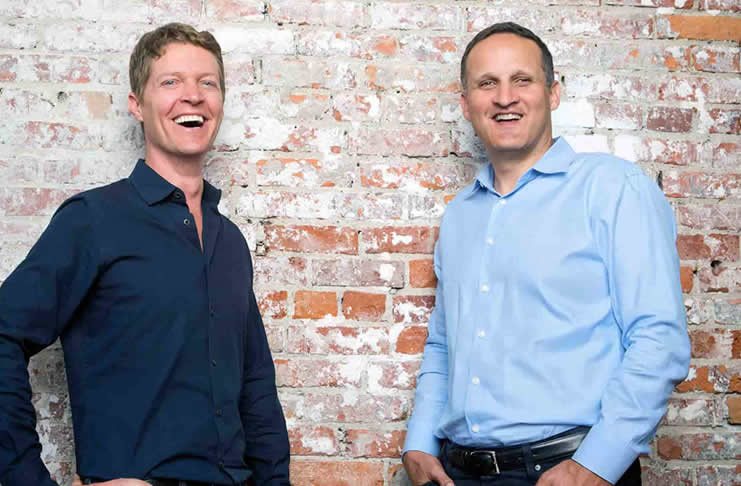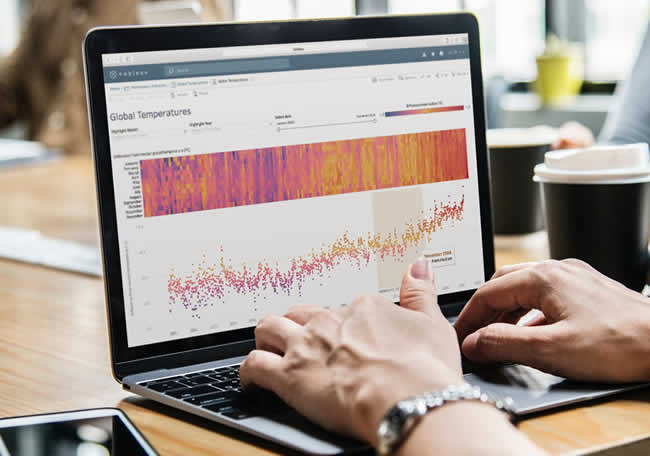Salesforce acquires data visualization and big data analytics expert Tableau Software for $15.7 billion in an all-stock transaction. It’s the largest acquisition Marc Benioff’s company made (the previous record goes back to 2016 when Salesforce acquired Mulesoft, a 6.5 billion deal).
Tableau Software was known to be on the acquisition target list of Salesforce (and, obviously that of several others) since several years. The acquisition of Tableau is touted as the coming together of the world’s number one CRM and number one analytics platform, whereby Salesforce wants to play a larger role in the digital transformation of organizations. Data, big data analytics and data visualization obviously take center stage in digital business transformation and pretty much all digital evolutions going on, including on the customer front where Salesforce wants to offer organizations a 360-degree customer view.
Tableau Software was founded in in 2003 by Chris Stolte, Pat Hanrahan and Christian Chabot with the mission to help people see and understand their data. All three were researchers at Stanford University when starting the business intelligence company.

As we move towards the famous 175 zettabytes datasphere and attention for analytics at the edge (edge computing and the need for real-time analytics) increases, reality is that ample organizations still have many challenges to manage and leverage data – not just customer data, all enterprise data.
Adam Selipsky, President and CEO of Tableau Software comments on the acquisition: “Joining forces with Salesforce will enhance our ability to help people everywhere see and understand data. As part of the world’s #1 CRM company, Tableau’s intuitive and powerful analytics will enable millions more people to discover actionable insights across their entire organizations”.
Actionable data and insights have been the mantra for years but now this is even more so. Organizations across the globe understand the data challenges and opportunities more than ever across ample industries.
According to an April 2019 update of IDC’s ‘Worldwide Semiannual Big Data and Analytics Spending Guide’, worldwide revenues for big data and big data analytics (BDA) solutions are forecast to reach $189.1 billion in 2019 and $274.3 billion by 2022 with digital transformation as a key driver.
While companies still have several ways to leverage data they dispose of using artificial intelligence and machine learning when new opportunities present themselves, it’s clear that the increased attention for big data analytics we’ve seen throughout 2019 is clearly driven by the emergence of data-intensive innovations, a growing attention for data and all its aspects (including protection and security indeed) and last but not least, the impact that 5G is expected to have on a level of use cases which already pop up today. While the volume dimension of big data is still impressive, the focus is on velocity with real-time analytics and, especially, value.
Turning data into value through actionable insights is where Tableau Software comes in as a pioneer and leader in the self-service analytics BI market. Tableau and has over 86,000 customers including the likes of Charles Schwab, Verizon, Schneider Electric, Southwest and Netflix.
The acquisition price of $15.7 billion means a premium of 42 percent on Tableau’s closing price on Friday, May 7th. Tableau will continue to operate under its own brand.
The acquisition will boost sales of Salesforce by 350 to 400 million dollars, out of a total of 16.5 billion dollars, yet with a lower profit – which is obviously due to the acquisition.
Under the terms of the transaction, Salesforce will commence an exchange offer to acquire all of the outstanding shares of Tableau. The acquisition of Tableau is expected to be completed during Salesforce’s fiscal third quarter ending October 31, 2019.
Tableau will continue to operate independently from Seattle under CEO Adam Selipsky. As a result of the acquisition, Seattle will become Salesforce’s second headquarters. Salesforce already has 1,000 employees in the city.

All pictures and logos are property of their respective owners. Picture Christian Chabot & Adam Selipsky and Tableau Server: Tableau Software media center.

